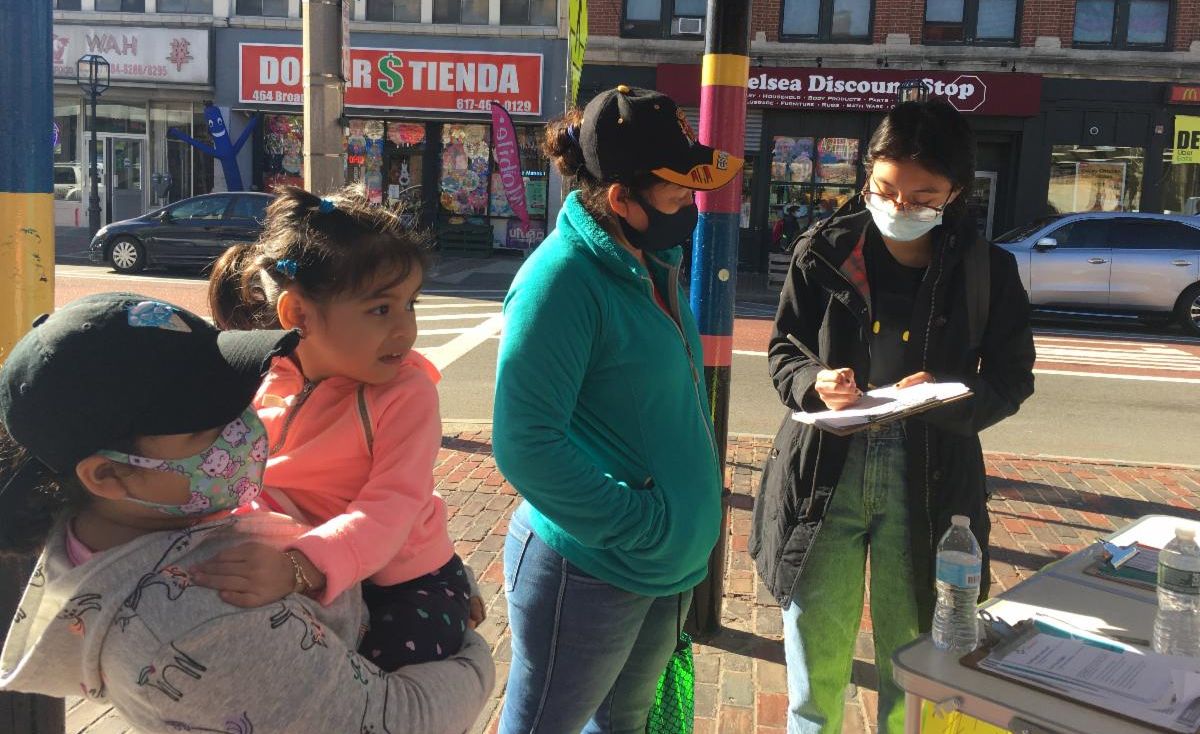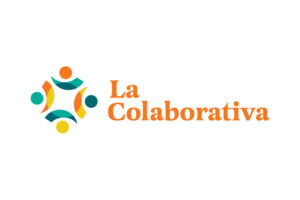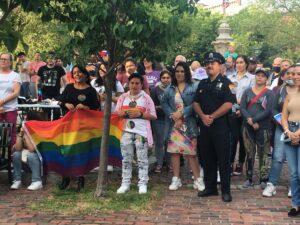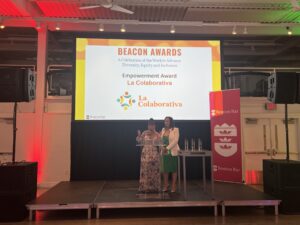In a world that went virtual almost overnight when the pandemic hit, La Colaborativa staff, youth, and volunteers have remained consistently present in our community – meeting our members face-to-face on the streets, outside their homes, at our food pantry, and in our neighborhoods. Phone calls, emails, and virtual meetings only go so far when it comes to reaching families in crisis. Civic engagement, voter participation, and community connections are critical foundations of an equitable pandemic recovery.
That’s why we knock on doors. We walk the food lines. We set up our tables on city streets and parks. We host Sabado de Calles (Saturday in the Streets). We Get Out the Vote. And we keep our doors open to ensure our community always knows where to find us.
In just the last six months, we’ve knocked on 20,000 doors in Chelsea, East Boston, Everett and Revere. These knocks have led to more than 14,000 successful, face-to-face interactions with our neighbors. We hire, train, and deploy community outreach workers, promotores, whose job it is to hit the streets and talk to our residents. Lately, conversations have covered voter registration, local elections, COVID prevention and vaccination, housing and food resources, and other wraparound supports available at La Colaborativa.
The factors that led Chelsea to “COVID hot-spot” status are complex. But one of our greatest fears when the pandemic emerged was that we would backtrack on social justice momentum we’d been building for decades around rights for immigrants, workers, tenants, and youth. We are working to keep our community informed, engaged, and supported – meeting members where they are, often in person, to ensure that community voices are heard, residents get out and vote, and our needs are met effectively in pandemic recovery efforts.
Your donations help us hire the promotores who lead our widespread and personal outreach. This summer we hired 20 promotores total, including 15 youth leaders. All are hired directly from the community and many have been personally impacted by COVID unemployment and food and housing insecurity.




